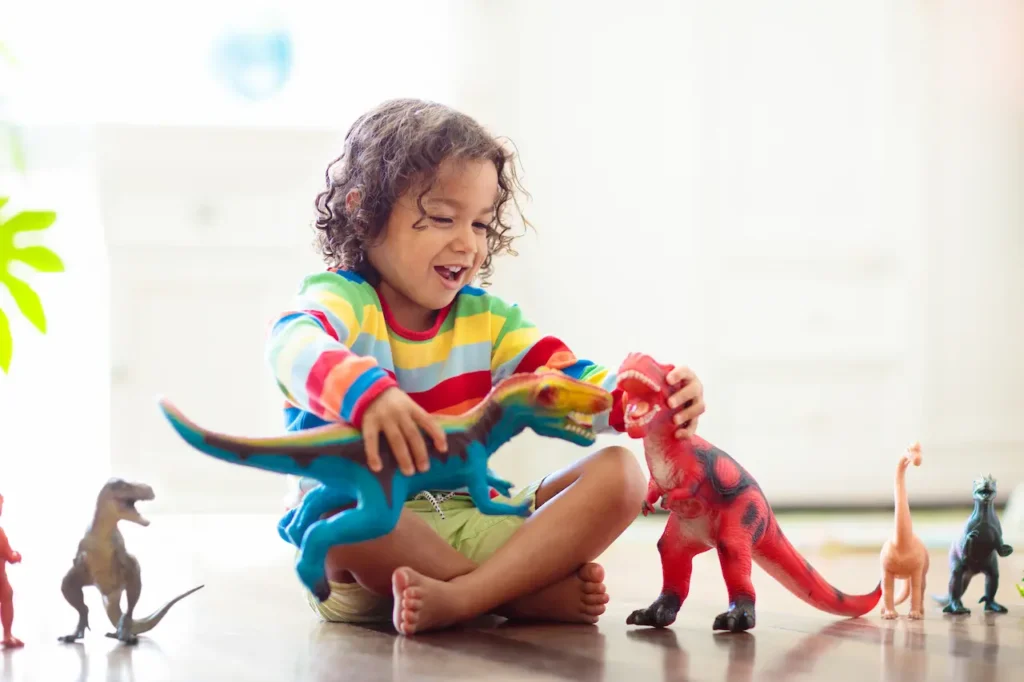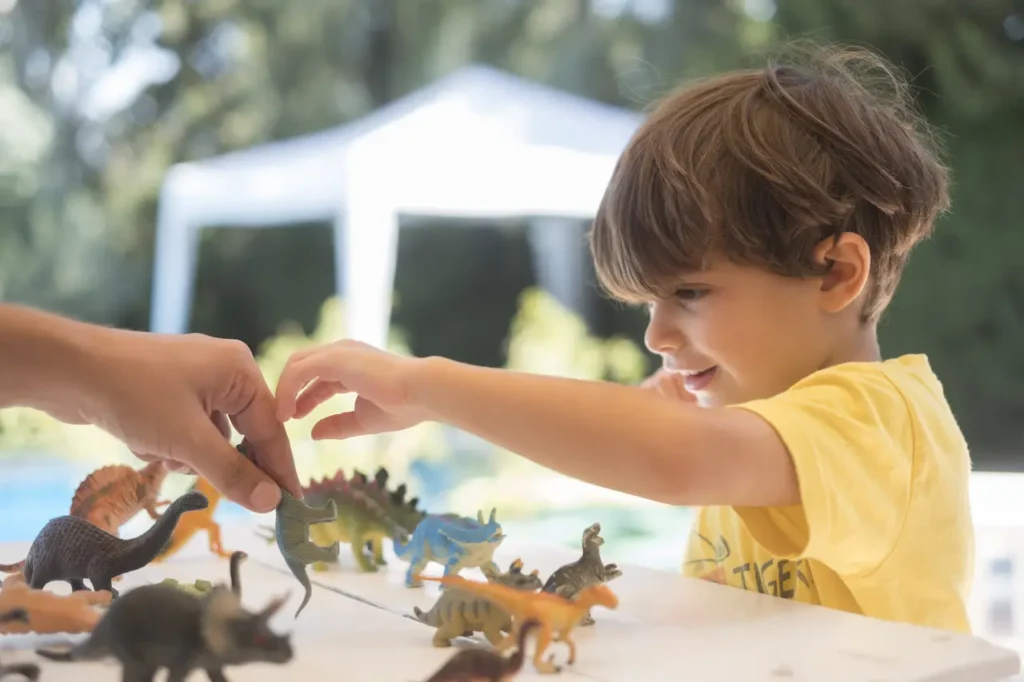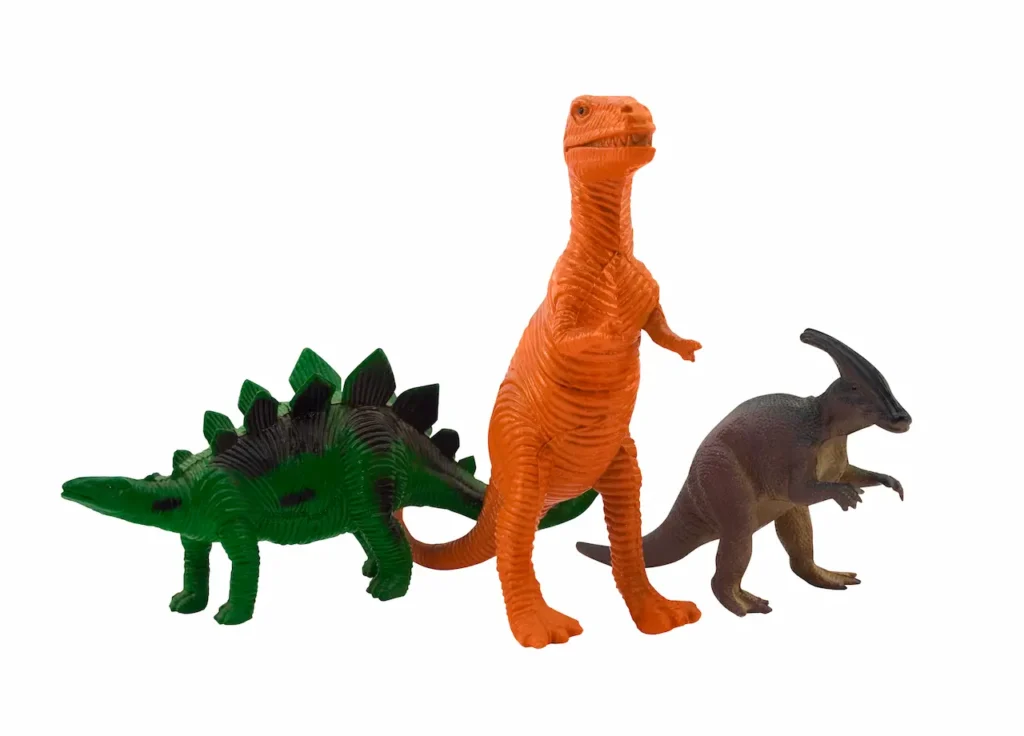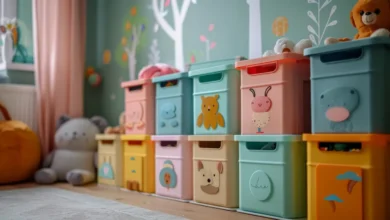Psychological Phenomenon: Extremely Intense Interests (EII).
A psychological phenomenon called extremely intense interest is one of the main reasons why children are so passionate about dinosaurs. Children in preschool often have phases when they obsess over a certain subject. This could be dinosaurs, cars, or a movie such as The Wizard of Oz. According to research, 33% of preschoolers experience intense interest in a particular subject. This usually begins around the age of 18 months.
They can have an unexpectedly positive impact on the development of children. They encourage kids to be more observant, improve their attention spans, and enhance their information-processing skills. Imagine that learning all about dinosaurs and the times they lived during can help a child become a better learner. These interests can last from six months to three, but they are a vital part of the child’s development.

A Safe Encounter With Fear
Dinosaurs are by nature both fascinating and frightening. They are associated with danger because of their sharp teeth, large claws, and intimidating size. Children are attracted to them. Why? Because dinosaurs are “safe monsters.” Dinosaurs no longer roam the Earth so children can explore their fears without actual danger.
This fascination can help children learn coping mechanisms to deal with fear. Kids may gain confidence by learning about these once-terrifying creatures and realizing that they are not a threat. This is a powerful experience that will help them to face their fears.
Playing with Primal Instincts
Some researchers think that the fascination of children with dinosaurs stems from a primitive instinct that goes back to hunter-gatherer times. Like other “big game” creatures, dinosaurs might have triggered an evolutionary survival bias in early humans. Being alert to these creatures may have meant the difference between death and life. The instinct for kids to study large and powerful animals could be an ancient survival strategy, even though dinosaurs are no longer on the Earth. Extinct dinosaurs are still fascinating to kids, even though they no longer exist.
A Natural Love of Learning
Dinosaurs appeal to children’s natural curiosity and desire to learn. Children can discover a whole world of dinosaurs, from their names to their size, their behavior, and the times they lived. Dinosaurs offer endless opportunities for kids to categorize and discover information. It is a fun intellectual challenge that allows them to feel like experts on a topic that very few people understand.
Susan Alloway is a U.S. mother who shared her daughter’s love of dinosaurs with the Cut. She said that her daughter enjoys that there are so many dinosaurs to learn and that they’re always new to discover. Her fascination is fueled by the complex names and endless amount of information. The love of learning seems to be endless and never-ending.

Dinosaurs and “Over-Excitability
In the 1960s, Polish psychologist Kazimierz Dabrowski identified several areas of intense emotional and intellectual activity in children, which he termed “over-excitabilities” or “super-sensitivities.” They include sensual, intellectual, emotional, and imaginative sensitivities. Dinosaurs appeal to many of these, especially the intellectual and imaginative. Children often spend hours analyzing dinosaur facts and creating stories about them.
20 Reasons Children Love Dinosaurs
Here are 20 reasons that kids love dinosaurs.
-
The Mysteries of Extinction Dinosaurs have disappeared, making them mysterious and fascinating. Children are fascinated by their ancient origins.
-
Pop Culture Appeal Dinosaurs feature in many children’s media, including books, films, and television shows, which makes them more appealing and familiar to kids.
-
Learning opportunities Dinosaurs are a great way to learn about science, natural history, and more. Dinosaurs can teach you about biology, paleontology, and geography.
-
Size: The size and strength of dinosaurs is astounding. Children are fascinated by the creatures that once walked on Earth and dwarfed everything around them.
-
Mystique: Children are fascinated by the unique features of dinosaurs–their scales, their claws and their teeth.
-
Educational value Dinosaurs are a great way to introduce kids to science and nature. They also help them develop a love for learning.
-
Adventure and Exploration: Exploring a world full of dinosaurs sounds exciting. Children love to imagine going back in time and seeing these magnificent creatures.
-
Imagination Game Dinosaurs inspire children to use their imaginations and create stories, and scenarios and enhance their storytelling and creativity skills.
-
The Ubiquity of Dinosaurs in Popular Culture. From Jurassic Park through Dinosaur Train. Dinosaurs are ubiquitous in popular culture. This makes them more appealing to children.
-
Natural History Dinosaurs help children feel connected to the world of nature and a sense that they belong in Earth’s past.
-
Constant discovery: New dinosaur species and facts are constantly being discovered, so there is always something new to learn for children.

Dinosaur Toy on White Background -
Exploring Prehistoric Eras Dinosaurs is a great way to help kids learn about prehistoric times and the evolution of the Earth.
-
Fossils & Paleontology: Discovering fossils and learning about paleontology is an engaging way to learn more about the past. Children love to imagine themselves as paleontologists.
-
Time Traveling Fun Dinosaurs let children “travel” to an era that no longer exists. This sparks their imagination and curiosity.
-
Universal Appeal Dinosaurs appeal to children around the globe, regardless of language or culture.
-
Excitement: Dinosaurs are enticing because of the combination of excitement and terror. Children’s excitement and wonder are heightened by the idea of meeting a dinosaur.
-
Unique Characteristics Dinosaurs have a wide range of sizes, shapes, and habits, which fascinate and provide endless material for children to explore.
-
Impressive names: The names of dinosaurs are usually long and complex. This makes it fun for children to learn and impress friends and family.
-
Role Play: Children love to dress up as dinosaurs and act out the life of a prehistoric creature. They used costumes and toys to show what it was like.
-
Playing and Learning Dinosaur toys and games are a great way for children to play and learn.
Conclusion
Dinosaurs are not just a passing fascination for kids. It’s an interest that reflects their creativity, curiosity, and intellectual growth. Dinosaurs offer endless learning opportunities and imaginative play, from their mysterious past to the size and strength of their enormous bodies. Next time your child begins to list their favorite dinosaurs with enthusiasm, keep in mind that it’s not just a phase. It’s a natural desire for knowledge, exploration, and adventure.



